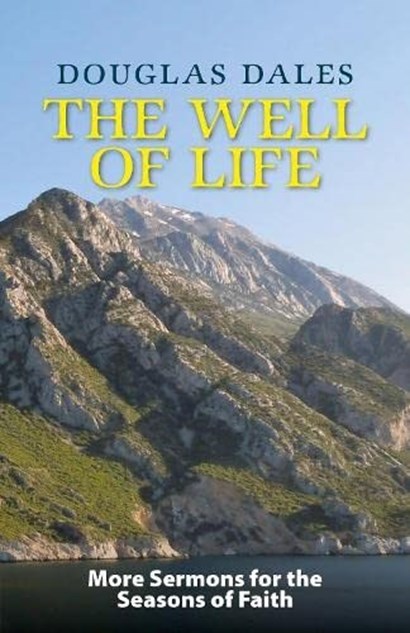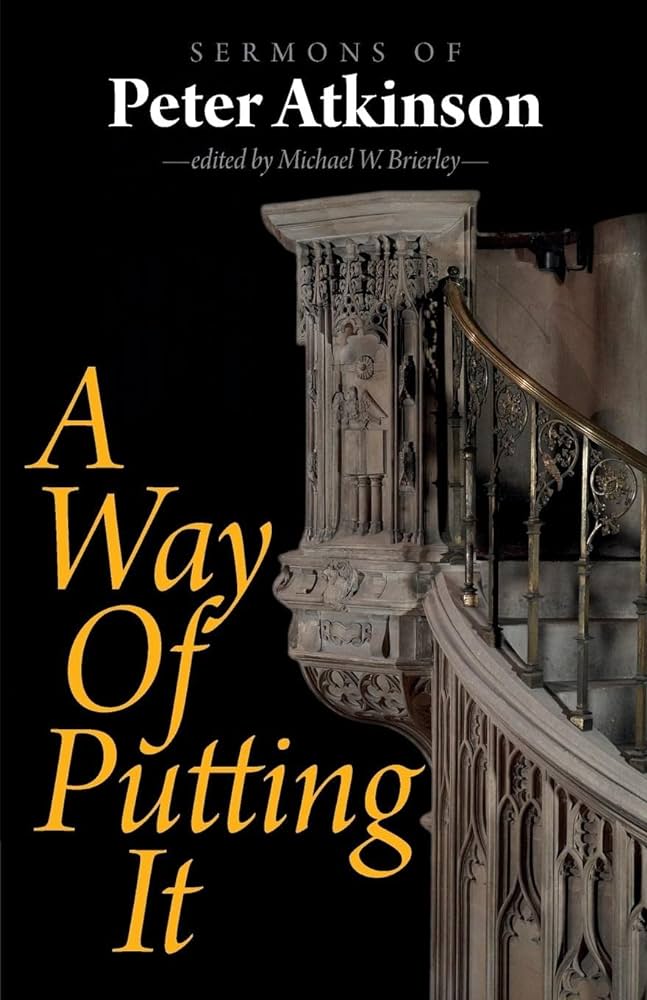By James Woodward
December 2023
I am writing this on a rainy Sunday afternoon somewhat typical of this time of year. Some of you may have been to Church this morning and experienced listening to a sermon. I wonder how it took hold of you ( if at all) and what you heard? At what point did your attention stray ? What were you left with? If lunch followed, did any of your fellow guests ask about your mornings experience?
Preaching is both a skill and an art. In this world of limited attention spans, the preacher has quite a task in holding a group to attention to listen to what is being shared. I preach a little these days, but not often. I have had times in my ministry where writing a sermon was part of the weekly routine. In addition, there were special occasions, like weddings and baptisms and funerals.
However the highlight of my week was often 160 children in Church, eager to worship and learn something more about God. Holding the attention of that large group aged from 5 to 11 was quite a task. However I have rarely experienced such ‘spiritual aliveness’ than those Thursday morning Services. Looking back now some fifteen years to those days and weeks I am left wondering what those adults remember of their experience of Church.
Sacristy press have not given up on the sermon! With some skill and discernment, they offer two books in recent months, that model the art of what is possible within crafting a sermon. Let us take a brief look at each of them.
 The Well of Life is Douglas Dales’ second finely crafted collection of sermons. It uses the shape and themes of the Eucharist for its structure. Six sections organise the themes. Preparation and patience; sacred times; the word of the Lord; belief and thought; communion of love; contemplative worship, and finally, a cloud of witnesses. The reader is offered 60 pieces of teaching and devotion, which were mostly delivered in the context of holy communion in a rural benefice of eight parishes in the Diocese of Oxford. The author’s scholarship shines through in an accessible and generative style. There is shape and substance here with little carelessness, meandering, or flights of fancy into the shallow and dangerous waters of sounding off.
The Well of Life is Douglas Dales’ second finely crafted collection of sermons. It uses the shape and themes of the Eucharist for its structure. Six sections organise the themes. Preparation and patience; sacred times; the word of the Lord; belief and thought; communion of love; contemplative worship, and finally, a cloud of witnesses. The reader is offered 60 pieces of teaching and devotion, which were mostly delivered in the context of holy communion in a rural benefice of eight parishes in the Diocese of Oxford. The author’s scholarship shines through in an accessible and generative style. There is shape and substance here with little carelessness, meandering, or flights of fancy into the shallow and dangerous waters of sounding off.
We are told that all of these sermons were originally preached without a text. After encouragement from his children, they were written up. Dales shows us how to be the theological and spiritual. He demonstrates the importance of drawing deep from the wells of the Christian tradition in the company of those who have gone before. We look to their witness for some meaning and shape for our discipleship.
It is impossible, of course, to make any judgement about how the sermons were heard. We shall never know what difference they may have made to those who had ‘ears to hear.’ Listening to those who break open scripture for us, and open up for us the richness of Christian history, and witness can only be one part of our nurture and growth in discipleship. Dales takes us into the heart of Anglicanism that holds together the primacy of scripture. He invites us to know and inhabit the Christian tradition that has been shaped by those who have gone before us. Above all it is grounded in the wonder, awe and praise of worship. The result is an enviable mixture of the nourishment of Christian wisdom for our journey of the life of faith in Jesus Christ.
 The second book worth drawing your attention to here opens up a methodology of homiletics familiar to my own theological formation in Cambridge in the early 1980s. Put simply: begin with some experience that might be illuminating, or arresting for the listener. Then attend to the scripture appointed for the day and show your listener how faith is to be lived in the concrete, unpredictable messiness of life. The style is distinctive. The tone is unthreatening. The message is compelling. This is an art and a skill that is so often missing in today’s Church. Atkinson shows us how to do it and the way in which we might ‘put it’ in and out of season.
The second book worth drawing your attention to here opens up a methodology of homiletics familiar to my own theological formation in Cambridge in the early 1980s. Put simply: begin with some experience that might be illuminating, or arresting for the listener. Then attend to the scripture appointed for the day and show your listener how faith is to be lived in the concrete, unpredictable messiness of life. The style is distinctive. The tone is unthreatening. The message is compelling. This is an art and a skill that is so often missing in today’s Church. Atkinson shows us how to do it and the way in which we might ‘put it’ in and out of season.
The collection is skilfully, edited by Michael Brierley, a colleague of Atkinson’s at Worcester Cathedral. Fifty examples of the art are offered. They read well (and are meticulously referenced), but for those of us who have not heard Peter preach, we might wonder about what ‘his distinctive tone and approach’ sounds and feels like.
These sermons are grounded, unstuffy, sometimes understated, but always fluent and kindly in their shape and tone. In a the world and Church, so anxious, so functional, so reductionist these texts lift us out of our shallow superficiality into the wisdom of a human being, that both knows himself, and knows how that self and others can be shaped by the Christian tradition.
They are also a reminder to those of us working in theological education, how important it is to shape a new generation of ministers in the tradition, in lifelong learning, and in an openness that is ready to dig deep beyond the limitations of our own superficiality. While we may believe that the tradition is to be trusted we might also be aware that we need to tussle and struggle with making this life and truth our own. This is a lifelong journey. We sometimes get lost. There is no quick fix. There are no easy answers but we are in this book in good company.
The editor suggests that the sermons can be used devotionally, and I think that is right. They take the reader through some of the liturgical year and I will be surprised if preachers did not turn to some of the material here for inspiration and guidance. Atkinson offers the reader, a turn of phrase, a self deprecating bit of humour, but above all honesty about our faithfulness to those who have lived the Christian faith. In a gentle and suggestive tone these pieces of verbal artistry show us how that faith might take shape in us. There is an unanxious, single-mindedness about Atkinson prose – which invites the reader, or listener into a different mindset for action, for living faithfully.
I found myself slightly surprised as I read these pieces of work. Lived Christian wisdom with heart and soul and mind. One can only hope that Peter Atkinson will keep on practising this art and craft, so that amidst the complexities and perplexities of our present, Church of England, we might just be able to live our best Christian lives.
James Woodward is Principal of Sarum College. He is a practical theologian who specialises in health and healing, old age, theological reflection and end of life care.
This article is adapted from the original, which appeared on James Woodward’s website

Leave a Reply
You must be logged in to post a comment.